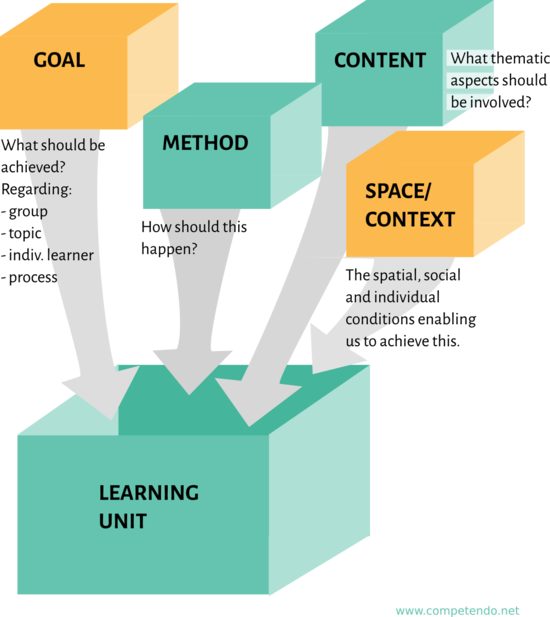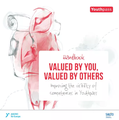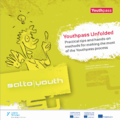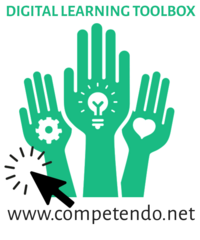Evaluation
![]() N. Zimmermann/ H. Fahrun
N. Zimmermann/ H. Fahrun
Evaluation
Structured interpretation and giving of meaning to predicted or actual impacts of proposals or results.
Focuses of reflection
During Planning facilitators were considering goals, contents, methods, topic, needs and the environment. From time to time it's necessary to check if the process is still inline with the plans or if priorities have changed or needs are different, or a process should take a general different direction.
Concept: The Method Mix
The quality of results depends on the methodology of data collection for reflection. In particular, a range of different ways to assess and interpret the needed data should be included, according to the principle of method mix.
Method Mix:
Style
- Choose appropriate methods for your target group
Confidentiality:
- Anonymous, half-public, or public
Group Relation
- In a plenum, in other collaborative ways, or in individual work
Addresses different senses
- Individually speaking, dialogue, writing, or moving
Quantitative or qualitative?
How deep should or must your evaluation go? When you want to know how your participants feel, you ask them to show you “thumb up/down”. Afterwards you know that ten persons feel well and three of them not so well. Or you ask detailed qualitative questions, with which you find out why they feel such a way or what they need to feel better. You use a quantitative and a qualitative method – both of them are effective based on the situation, and often complement each other.
Documentation of the Results
When choosing your method, you should also consider the form in which you need results. Language, pictures, photos… Many things are possible and they can complete a particular situation or also contrast it. It is important with most methods to formulate a question as concretely as possible.
As self-evaluation is crucial for independent learning, we also include methods her that help individuals to document learning outcomes, inspirations, and insights in an individual way.
Selected Methods
Inspiring Handbooks and Sources from the Community
Valued by You, Valued by Others
Improving the visibility of competences in Youthpass (and also in other contexts)
DownloadRecognizing Learning in Youth Exchange
Youth Work Service, Léargas' handbook complementary to YouthPASS, with suitable methods as well for evaluation and competence assessments without using the YouthPASS
DownloadAssessment and recognition in formal and non-formal learning in entrepreneurship education
An introduction not only for entrepreneurship education by the project EntreComp 360
DownloadThe Learning Curve
A guide to evaluation for youth organizations
DownloadYouthPASS unfolded
Practical tips and hands-on methods to make the most of the Youthpass process edieted by SALTO and Jugend für Europa
DownloadAssessing competences for democratic culture
Principles, methods, examples by Council of Europe
DownloadEmpower yourself
Self-assessment tool created by the French Scout and Guides movement
DownloadFacilitation Step-by-step
Competendo Portfolio Tool for Facilitators
DownloadCaptain's Log
Competency-related portfolio tool
DownloadReflective Peacebuilding
John Paul Lederach, Reina Neufeldt, Hal Culbertson,
Kroc Institute for International Peace Studies: Planning oriented on impact Download
Apps and Tools: Evaluation
Competence Explorer
Browse different competence frameworks
onlineiEVAL
Platform for evaluation of international youth exchanges by IJAB
onlineQ!App
Collaborative project concept development online by European Platform for Learning Mobility (EPLM)
onlineONCOO Zielscheibe
Target feedback method. Non-commercial and privacy-sensitive (currently only in German)
online
Apps and Tools: Recognition, Assessment, Validation
Several online tools support learners and educators in (self-)assessment. However, one should check their terms and conditions for storing and using personal data before using them in trainings.
AppRaiser
Trainers appraisal platform of the International Youth Work Trainers Guild
AppRaiserGo Formative
Track developments of learners online
Go formativeOpen Badges
Share "learning badges" with your learners for every achievement in a learning process with help of a digital platform.
Open BadgesEaSY soft skills
A skill assessment online tool, model and method handbook
OnlineSkilloon
A research-based self-learning platform following the EntreComp model from Not a bad idea (Finland) and the Finnish education ministry.
Online
Download: Banner






















